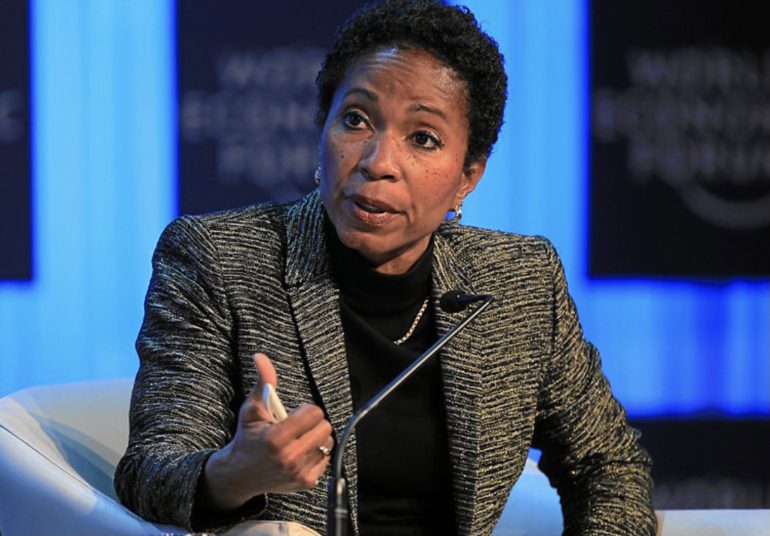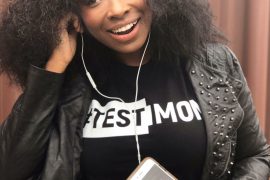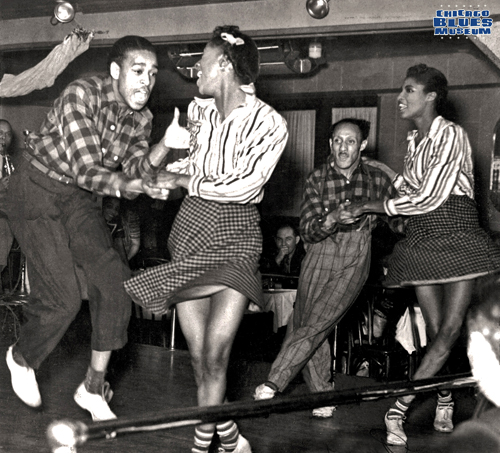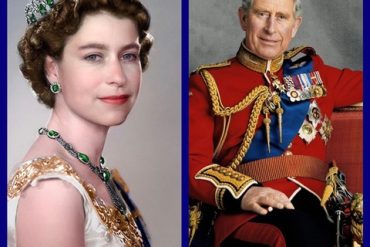Dr. Helene D. Gayle has been President and CEO of the Chicago Community Trust, one of the nation’s old and largest community foundations, since October 2017. For over 100 years, The Chicago Community Trust works with donors, nonprofits, community leaders, and residents to lead and inspire philanthropic efforts that improve the quality of life in the Chicago region. Under her leadership, the trust has adopted a new strategic focus on closing the racial and ethnic wealth gaps in Chicago.
Born and raised in Buffalo, NY., Dr. Gayle has had an extensive history of serving that has enabled her to become successful in her career. Helene has had the opportunity of leading other global organizations such as the Bill and Melinda Gates Foundation, the Centers for Disease Control and Prevention, and the Presidential Advisory Council on HIV/AIDS. During her tenure in these various organizations, Helene was able to fully maximize her service and lead the organizations to operate in the highest potential. Helene has been a recipient of numerous awards and recognitions. She holds at least 30 awards, the most notable being the Woman of Valor and the Desmond Tutu Awards.
Named one of Forbes’ “100 Most Powerful Women” and one of the NonProfit Times Power and Influence Top 50,” she has authored numerous articles on global and domestic public health issues, poverty alleviation, gender equality, and social justice. Helene also holds five honorary degrees space a true testament to her skill and ability it shows how much she has become an inspiration and influence throughout her career.
There is so much I want to discuss with Dr. Helene Gayle, so let’s get started.
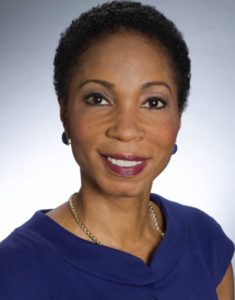 N’DIGO: You were a medical doctor, how did you become interested in philanthropy?
N’DIGO: You were a medical doctor, how did you become interested in philanthropy?
Helene Gayle: I never focused on the sector. I focused on what I could accomplish. I was working on ways I could produce social change. I went from being a pediatrician, to public health for disease control, and to help the health of population. I ended up at the Gates Foundation, working in public health, which was their interest and focus. Then on to Community Trust, working in health and wealth building. I am interested in the dynamics of producing positive change in people’s lives.
You have changed The Community Trust’s focus, seemingly to be more relevant, how so?
I was new to Chicago and in my first year, I talked to staff and board, members. I wanted to understand how people viewed the Community Trust. What people thought about the impact of the Trust, externally was important. The Trust has been around for a century and it was difficult to point to a specific way of impact. I wanted to know; how did they engage in the Trust. People had different views. I took as my mandate, how the organization could have more sustained impact by how we funded and how we used our organization influence. What would we do and how we functioned was important? How could we be a more relevant partner with community and produce positive change. We thought about transition and how we function as an organization. We thought of ourselves not only as grant makers but also change makers, as it relates to closing societal gaps.
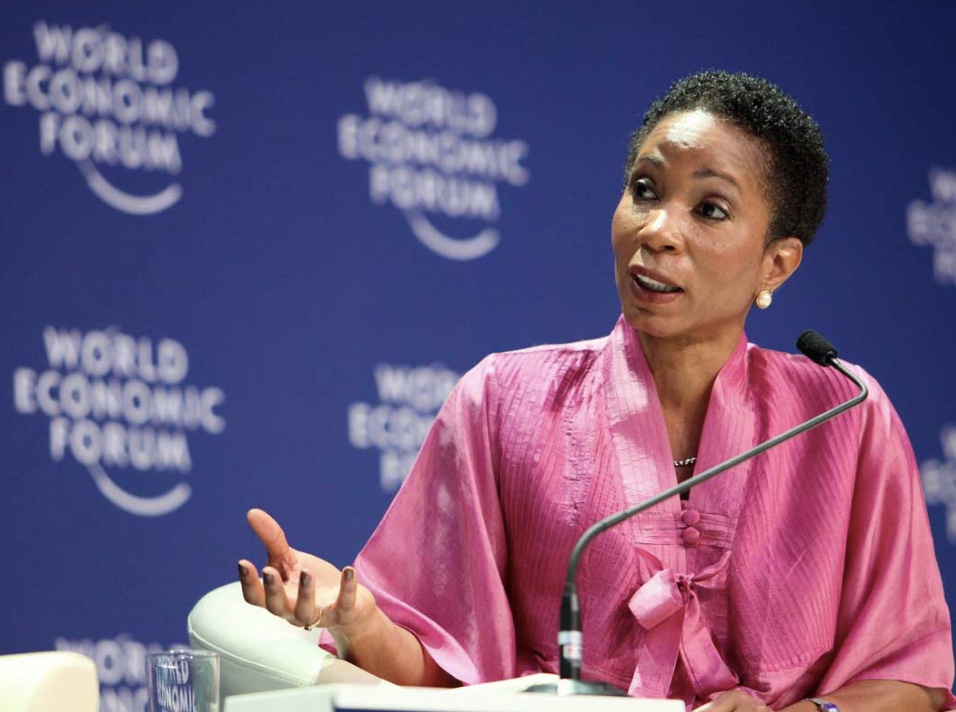
Tell me about “Together We Rise.” What are the initiatives and how do you see the dynamics?
We launched a couple of weeks ago in response to the COVID-19 response fund, along with United Way to provide immediate release to those most impacted from COVID-19.
This program is for those impacted the most trying to pay their bills. We were looking at the huge economic impacts to the many communities already unstable, and living in economic crisis. These were Black and Brown communities. We needed a concerted effort of equitable recovery so as we come out of COVID-19, we wouldn’t leave those communities behind. We are interested in equitable recovery. We want funds to provide support.
Secondly, we are working with businesses on how to they can change from procurement to lending.
Thirdly, we were looking at policies that could advocate, support and enhance economies, particularly around things hard hit, like careers, jobs, service jobs, hospitality and lower wage jobs. How could we help get more people to get into more stable positions, and how could we get more investments in to small businesses, to build the eco system.
COVID-19 has hit communities of color severely, what role does the philanthropic community play to ease the burden?
Monies can be used for initial support, none large enough to close up the holes. The first dollars can be used to bring about solution, that can be expanded to private and public sectors. We can create innovation, and pilot new ideas. We can fund a lot of things upfront, particularly emergency dollars.
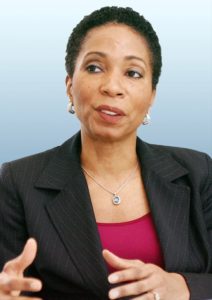 How does the Community Trust help to eradicate racism in this day?
How does the Community Trust help to eradicate racism in this day?
The Community Trust will not eradicate racism. We are focused on the wealth gap, fundamentally to the way of life for Black and Brown community. If that population is held back, we all are held back. We are focused on the vitality of building these communities. If you focus on the wealth gap, because of the racism, you focused on equality. The wealth gap excluded people from financial opportunities with policies like contract buying, discrimination in employment, and red lining. We have to deal with the barriers that have been put in in place on racism.
How do you like living in Chicago?
I love it here, it’s a great vibrant city. I miss attending events and the museums. The city is beautiful and Chicago has the most exciting summers in the nation.
What’s on your playlist?
My musical taste is broad. When running, I listen to Common to Luther to Janet Jackson to Quincy Jones. I listen to a wide range of jazz, world music, music from Africa and Brazil. I love R&B especially those songs that remind me of blue nights in the basement parties. Stevie Wonder is my all-time favorite artist. He has been with me all of my life. He gives the clarion call.
Would you ever consider running for public office?
No, not at this point. I have played different roles and have felt that I am doing what I should do. Sometimes you can influence the political process outside more than inside.


